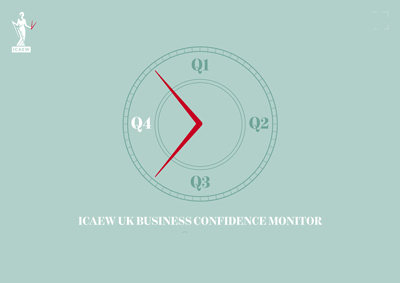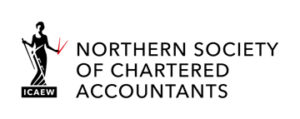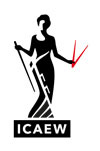EGM called by Northern Society of Chartered Accountants
19 September 2023
Notice is given that the...
 The latest ICAEW Business Confidence Monitor (BCM): Northern England report sets out that at Q4 2021, business confidence remains high despite labour market challenges.
The latest ICAEW Business Confidence Monitor (BCM): Northern England report sets out that at Q4 2021, business confidence remains high despite labour market challenges.
Northern England’s Business Confidence Index has slipped below its record high from the previous quarter. However, at +30.7, it still stands well above the historical average for the region. Sentiment is probably being buoyed by expectations of a continued recovery in sales over the next year. Announcements of large-scale investment plans by Nissan and Britishvolt may also have had a positive effect on business optimism in the region.
After suffering steep falls during the pandemic, sales are now beginning to recover in Northern England. Demand conditions remained weak in the final months of 2020 and early parts of 2021 but have since improved after the easing of COVID-19 restrictions. The net effect is that domestic sales are 0.8% higher year-on-year in Q4 2021. And over the same period, exports have risen by 1.3%. Businesses expect that the recovery in sales will gain further momentum over the coming year. Domestic sales growth is projected to accelerate to 4.7% over the next 12 months, while exports are forecast to increase by 3.1%, which is similar to pre-pandemic rates. Businesses in Northern England are among the most export-intensive across the UK.
Faster sales growth is also likely to be the reason why only 36% of companies are increasingly challenged by customer demand in the year to Q4 2021, compared to a pandemic peak of 52% year-on-year in Q1 2021.
Related to the upturn in demand, businesses have started to increase their employee numbers again, following a period of decline. Over the last year, staff levels are up by 1.5%. And as the recovery continues to build, headcounts are projected to rise a further 1.4% in the year ahead. This partly helps to explain the expected 1.7% increase in average total salaries over the next 12 months and would represent a return to pre-pandemic growth.
The pick-up in salary growth is also linked to the difficulties companies are facing with regard to skills shortages and recruitment. Labour supply bottlenecks, as many companies simultaneously try to recruit in order to meet demand, mean that difficulties with the availability of non-management skills have become much more widespread. 32% of companies are challenged by this in Q4 2021, considerably higher than the region’s historical average of 18%. Staff turnover is also a growing source of difficulty for 37% of businesses, the second highest rate seen in the region (behind Q4 2018) since the survey began in 2004.
Challenges are not just confined to the labour market. Transport problems are a more pressing issue for 31% of companies in the year to Q4 2021. This is the highest in a decade and is likely to reflect freight capacity constraints as demand surges, including a shortage of HGV drivers. It is also possible that border problems stemming from Brexit are creating difficulties for companies.
In addition to rising wage bills, companies are dealing with rising input cost pressures. In the year to Q4 2021, input prices are up by 2.6%, and are expected to increase by a further 2.2% in the 12 months ahead. Supply-chain disruptions and higher costs for raw materials are both probable factors behind this. However, businesses do not intend to fully absorb these costs; they plan to increase selling prices by 1.9% in the year ahead, which would be above the historical average for the region.
The recovery in demand has also prompted businesses to increase their planned investment rates. Both capital investment and Research & Development (R&D) budgets are expected to rise at faster rates than over the last 12 months. Growth in capital spending may also be linked to the sharp fall in the proportion of companies operating below capacity in the region.
Find out more about the ICAEW Business Confidence Monitor at icaew.com/bcm
 Northern Society of Chartered Accountants (NorSCA) represents 4,000 ICAEW members and ACA students working in business and the finance profession across the North East of England, Teesside, northern Yorkshire and Cumbria.
Northern Society of Chartered Accountants (NorSCA) represents 4,000 ICAEW members and ACA students working in business and the finance profession across the North East of England, Teesside, northern Yorkshire and Cumbria.
We have been assisting businesses in the north of England and producing chartered accountants for over 130 years.
 There are over 1.7m chartered accountants around the world – talented, ethical and committed professionals who use their expertise to ensure we have a successful and sustainable future.
There are over 1.7m chartered accountants around the world – talented, ethical and committed professionals who use their expertise to ensure we have a successful and sustainable future.
Over 149,000 of these are ICAEW Chartered Accountants. We train, develop and support each one of them so that they have the knowledge and values to help build local and global economies that are sustainable, accountable and fair.
We’ve been at the heart of the accountancy profession since we were founded in 1880 to ensure trust in business. We share our knowledge and insight with governments, regulators and business leaders worldwide as we believe accountancy is a force for positive economic change across the world.
ICAEW (Institute of Chartered Accountants in England and Wales) is a founder member of Chartered Accountants Worldwide and the Global Accounting Alliance.
Share this article...
Tweet